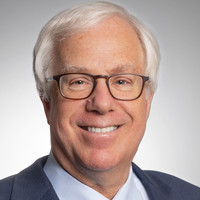Last week two New York police officers, Jason Rivera and Wilbert Mora, responded to a 911 call from an apartment where a domestic dispute was raging. A man with a semi-autonomic handgun equipped with 40 rounds of ammunition opened fire, fatally wounding both.
First to die was Mora, a 27-year-old Dominican American, one of the 30% of New York City's police force of Hispanic origin. He had gotten his bachelor's degree in 2018. "It was such a good family," a neighbor told the New York Times. "I cried, I tell you. It's such a loss."
Rivera died a few days later. The 22-year-old son of Dominican immigrants, Rivera had dreamed of becoming a police officer since childhood. His widow doubtless spoke for hundreds of thousands of law enforcement families across America, where the number of killings of police officers is higher than it has been since 1995. "We are not safe anymore," she said. Rivera and Mora were the third and fourth police officers shot in New York City in a 72-hour period.
Rivera's older brother remembered the way Jason had instinctively cared for others during his short life. "My brother was dedication," he said. "He was the definition of integrity. He was joy."
The increase in shootings of police officers comes as we ask them to respond to an increase in violent crime in many American cities. More than two-thirds of the country's 40 most populous cities reported more homicides in 2021 than in 2020, and 10 of those cities reported more homicides than in any year on record. "When homicides go up, more shootings go up, and it contributes to an overall increase in violence, and police officers find themselves in the middle of that environment," Chuck Wexler, executive director of the Police Executive Research Forum, told CNN.
The scenes of thousands of police officers filling Fifth Avenue outside St. Patrick's Cathedral to honor their fallen colleagues served as a stiff reminder that the glib, facile blanket condemnations of police so fashionable in certain privileged progressive circles are just that — glib and facile. The wholesale hostility visited upon law enforcement as a profession, an obligatory feature of far-left rhetoric, is simply unfair. It also repels the overwhelming majority of Americans — including the majority that is simultaneously repelled by the evidence that injustices perpetrated by police against Americans of color are sufficiently pervasive to qualify as systemic.
The murder of George Floyd by a Minneapolis police officer in May 2020 punctuated a series of videotaped, utterly indefensible police shootings of Black Americans over the last several years. Unsurprising to Black citizens, these incidents penetrated White Americans' consciousness in a new way. Floyd's murder followed on the heels of the March 2020 killing of Breonna Taylor in Louisville, Kentucky, by police looking for her boyfriend. In April 2020, a police officer shot Duarte Wright in his car after pulling the 20-year-old over for expired registration tags. Then in August, police shot Jacob Blake seven times in Kenosha, Wisconsin, leaving him paralyzed.
While the charge that America suffers from systemic racism has been a difficult pill for White Americans to swallow, the evidence speaks for itself. That Black people are at risk driving while Black, jogging while Black and breathing while Black just can't be denied. Outrage at that fact is not only understandable. It is called for.
But this doesn't translate into a basis for deriding police, let alone disrespecting the terrible burdens borne by police officers and their families. And Americans know it. A Pew Research survey conducted last October found that only 15% of adults believe that funding for police should be cut. Only 24% of Black adults, and only 16% of Hispanic adults, believe this.
Shrill and sweeping denunciations of police and disregard for our debt to them are no more rational than denials that America suffers from persistent, pernicious racism. Both are thoughtless. Both are foolish. Both are divisive. Those with a sense of humanity who care about the precarious state that America is in can do better.
Jeff Robbins, a former assistant United States attorney and United States delegate to the United Nations Human Rights Council in Geneva, was chief counsel for the minority of the United States Senate Permanent Subcommittee on Investigations. An attorney specializing in the First Amendment, he is a longtime columnist for the Boston Herald, writing on politics, national security, human rights and the Mideast.
Photo credit: RJA1988 at Pixabay






View Comments